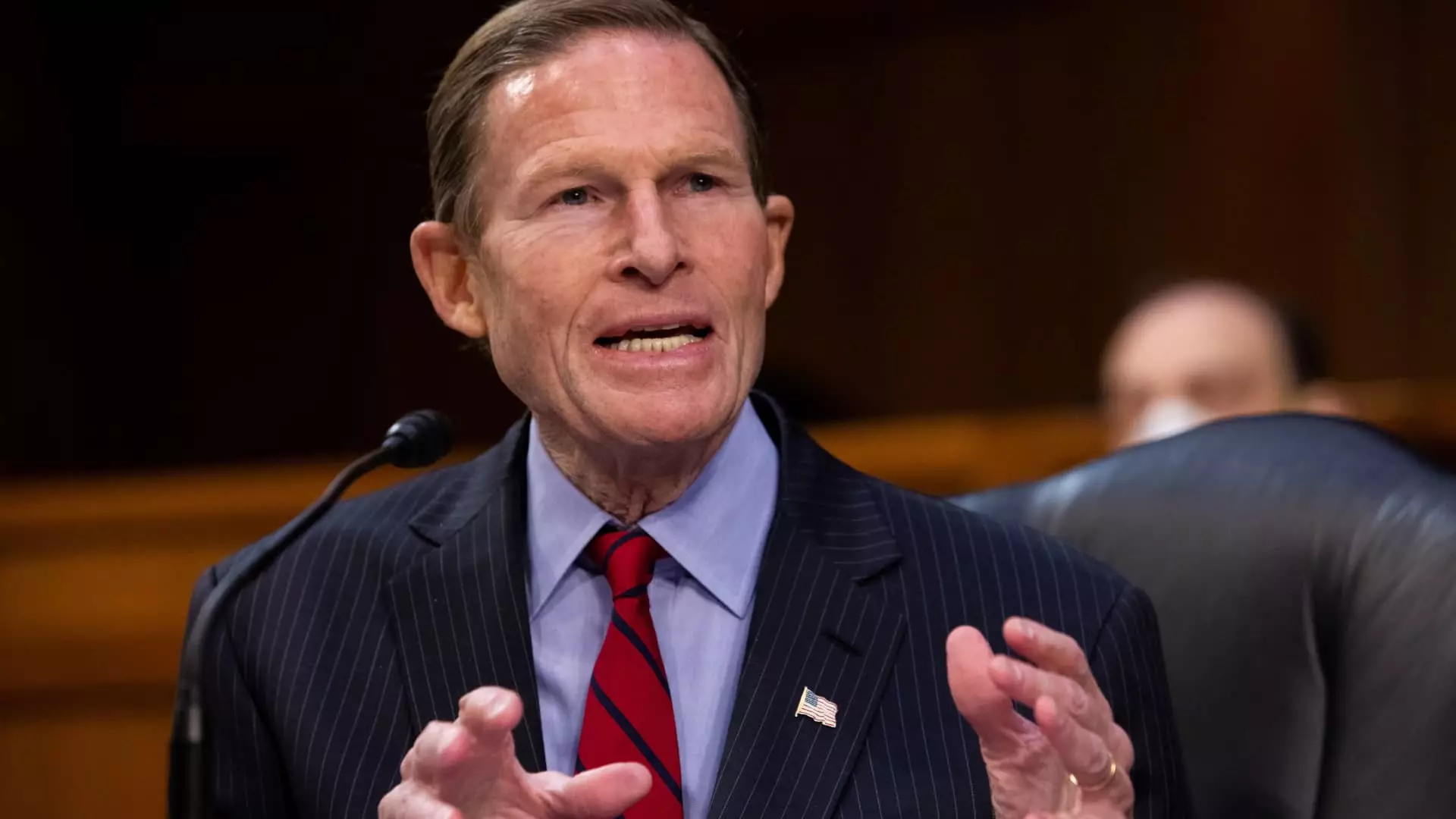The political landscape is shifting as concerns mount about the implications of partnerships between major corporations and influential figures in tech. This week, Senator Richard Blumenthal, a Democratic leader from Connecticut, made headlines by questioning Visa’s recent collaboration with Elon Musk’s social media platform, X (formerly known as Twitter). As Visa prepares to roll out a digital wallet for payments on the site, Blumenthal’s inquiry opens the Pandora’s box of corporate responsibility, regulatory oversight, and potential ethical pitfalls associated with combining financial services and social media.
Musk has a knack for attracting attention, but it’s not always the kind that inspires trust. With his controversial management style and track record, especially regarding the Consumer Financial Protection Bureau (CFPB), concerns about potential conflicts of interest arise. Blumenthal’s assertion that Musk may “kneecap” potential regulators raises an essential question: how much risk are we willing to accept by allowing powerful icons to dictate the rules of the financial game, particularly in a space as sensitive as consumer finance?
Elon Musk: A Risky Business Partner?
While Musk’s ambitions may drive innovation, history has shown that his ventures often operate on the fringes of conventional corporate governance. The CFPB has long acted as a watchdog for consumer rights; Blumenthal’s criticism bears weight when examining how Musk’s maneuvering could undermine this very function. The notion that Musk’s Department of Government Efficiency could siphon sensitive data from the CFPB adds another layer of complexity. Can we genuinely believe that an ecosystem led by someone with Musk’s track record will prioritize consumer protection?
This collaboration with Visa raises not just eyebrows but alarm bells. The social media landscape has been marred by the rampant spread of misinformation, scams, and malicious content. Blumenthal’s concerns about X’s ability to manage fraud effectively are valid; after all, users have faced a barrage of bots and scams even before the integration of financial services. How can we trust a platform that has demonstrated weaknesses in curbing deceptive practices to safeguard our financial interests?
Visa’s Role: An Ethical Dilemma
Visa, as the world’s largest payment processor, carries with it immense responsibility. Senator Blumenthal’s probing seeks more than just operational details; it reflects a growing demand for corporate accountability, particularly when financial crime intersects with tech governance. The letter sent to Visa’s CEO, Ryan McInerney, underscores a concern that echoes among policymakers: Is Visa complicit in a venture that could expose consumers to financial risks they neither foresee nor understand?
Musk’s dealings could bring about a perfect storm for financial malpractice, and it is Visa’s duty to ensure its massive network remains free from illicit activities. The balance between innovation and protection becomes precarious when such considerations are often overshadowed by profit motives. Is Visa prepared to stand neutral in this risky alliance with Musk, especially when public trust is on the line?
A Call for Transparency in Corporate Alliances
The senator’s request for thorough documentation on Visa’s operational model for the proposed digital wallet, as well as their compliance methods against money laundering and terrorist financing, is not merely a bureaucratic exercise; it is a necessary measure to protect consumers. Amidst the rapid pace of the digital age, where big tech often operates without stringent oversight, such inquiries are essential in ensuring that corporate alliances don’t lead to an erosion of consumer welfare.
Transparency should not be optional for corporations seeking to make inroads into the financial sector, especially those tied to platforms with a questionable reputation. Musk’s X is not just entering the field of payments; it’s treaded into a domain that requires meticulous oversight. The ramifications of failure are significant, not just for users, but for the entire financial system.
As the situation unfolds, we must remain vigilant. The intersection of tech innovation and consumer finance may herald a new era, but we must never forget that with great power comes great responsibility—and a dire need for accountability. In a world where digital technology increasingly influences our lives, we must challenge ourselves to ask hard questions and demand rigorous standards from those who wield that power.

